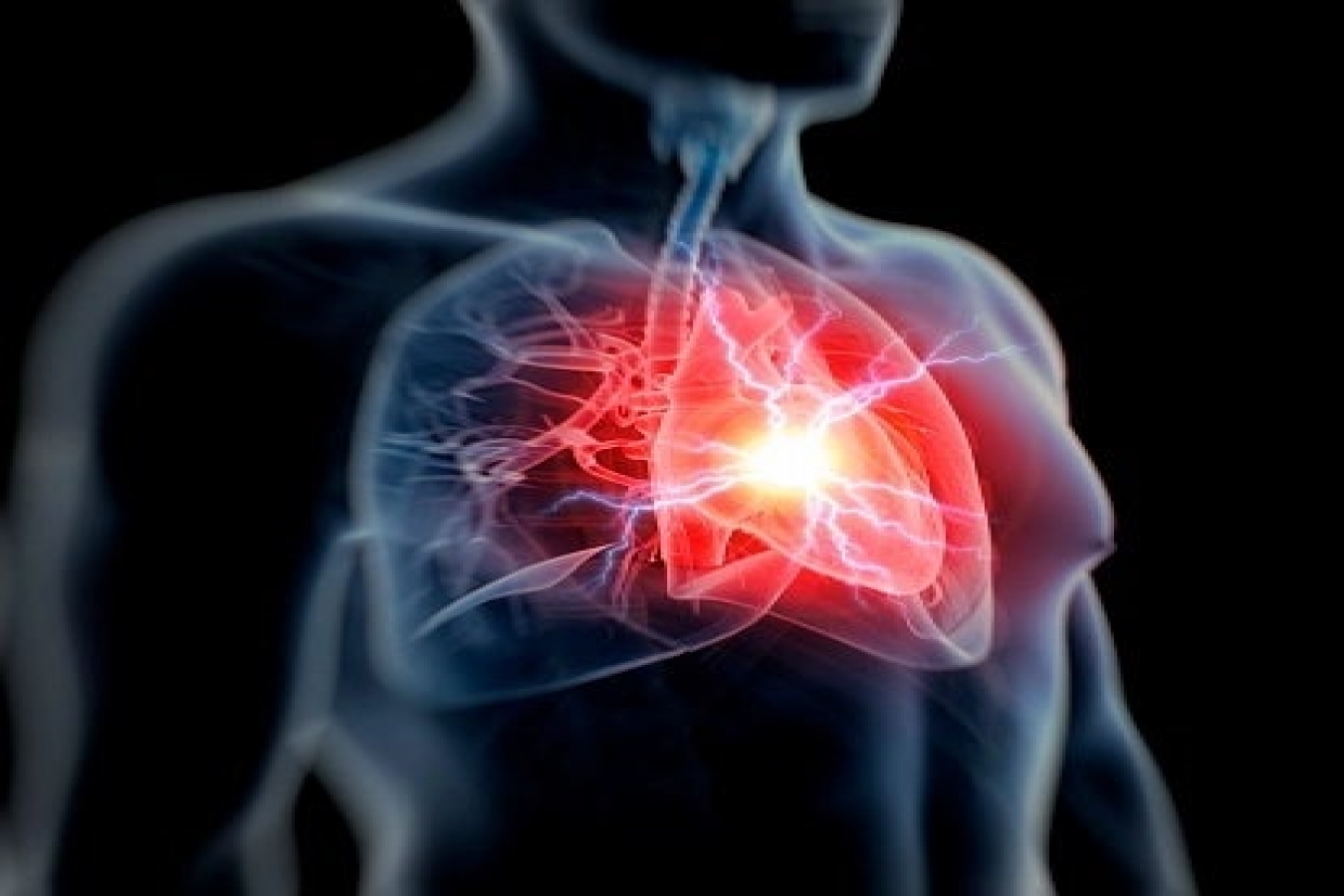


 7:2:23
7:2:23  2019-11-13
2019-11-13  901
901

A new study has found a link between lower muscle mass and a higher risk of cardiovascular events — at least in males aged 45 and over. This association, the research indicates, is valid even for males with no history of heart disease.
Some loss of skeletal muscle mass occurs naturally as people age. This process especially affects males.
In fact, research shows that after the age of 30, muscle mass tends to decrease by 3–5% per decade in males.
People can prevent and minimize this loss by staying active. If they do not, it may contribute to poor health and well-being.
Some past studies have suggested that people with cardiovascular disease who experience higher loss of muscle mass also have a higher risk of premature death.
However, to date, little to no research has looked into the possible associations between muscle mass and cardiovascular risk in people without preexisting heart or circulatory problems.
Now, specialists from the Centro de Investigación Biomédica en Red de Salud Mental in Madrid, Spain, the University of Canberra in Australia, and the University of Athens in Greece have conducted a study with the aim of filling in that research gap.
The new study — the results of which appear in the Journal of Epidemiology & Community Health, and whose first author is Stefanos Tyrovolas — has analyzed the data of a cohort of male participants aged 45 and over covering a follow-up period of 10 years.
Its findings suggest that, in males at least, maintaining muscle mass may help keep cardiovascular problems at bay.
Muscle mass loss may increase heart risks
The team analyzed the medical information of 2,020 participants — of whom half were male and half were female — over a period of 10 years. All but one of the particpants were aged 45 and over, and all were free of heart disease at baseline.
At baseline, the participants provided data regarding their lifestyle choices, such as diet and exercise, as well as measurements of circulating blood fats, systemic inflammation biomarkers, weight, and blood pressure.
The researchers explain that all these values are important, since they can affect a person's risk of cardiovascular problems. In addition to these data, the investigators also calculated the participants' skeletal muscle mass adjusted in accordance with every individual's weight and height.
Over the 10 year follow-up period, the researchers recorded 272 cardiovascular events — both fatal and nonfatal — that included stroke and minor stroke. These cases all occurred among the working sample of 1,019 participants who had been 45 or over at baseline.
The team found that males were about four times more likely to develop cardiovascular disease than females. Moreover, they saw a link between lower muscle mass volume and a higher risk of cardiovascular problems in the case of males.
At the other end of the spectrum, males with the highest muscle tissue volume at baseline had an 81% lower risk of events such as stroke and heart attack, compared with those with the lowest muscle mass at the start of the study period.
The team also found that males with the highest muscle tissue volume at baseline had a lower prevalence of other risk factors for cardiovascular issues, such as high blood pressure, diabetes, or obesity.
It remains unclear why the association between cardiovascular problems and muscle mass was significant only in the case of males, though the researchers hypothesize that hormonal differences between males and females as they age may explain the discrepancy.
Although the authors admit that their observational study cannot establish any cause and effect relationships, they maintain that its findings "point to the importance of [skeletal muscle mass] preservation in relation to [cardiovascular disease] risk."
In their study paper, they conclude that:
"The prevention of [skeletal muscle mass] decline, which is becoming increasingly prevalent among middle-aged and older populations, may constitute an effective means of promoting [cardiovascular] health."
Reality Of Islam |
|

For years,

New scienti

This is the

A computer
 9:3:43
9:3:43
 2018-11-05
2018-11-05
10 benefits of Marriage in Islam
 7:5:22
7:5:22
 2019-04-08
2019-04-08
benefits of reciting surat yunus, hud &
 9:45:7
9:45:7
 2018-12-24
2018-12-24
advantages & disadvantages of divorce
 11:35:12
11:35:12
 2018-06-10
2018-06-10
 6:0:51
6:0:51
 2018-10-16
2018-10-16
 4:26:43
4:26:43
 2022-02-21
2022-02-21
 2:34:48
2:34:48
 2022-01-18
2022-01-18
 2:11:12
2:11:12
 2022-10-15
2022-10-15
the happy life of mankind requirement
 6:36:36
6:36:36
 2022-01-25
2022-01-25
 7:6:7
7:6:7
 2022-03-21
2022-03-21
 6:14:3
6:14:3
 2023-01-18
2023-01-18
 9:50:37
9:50:37
 2023-02-28
2023-02-28
 5:41:46
5:41:46
 2023-03-18
2023-03-18
| LATEST |